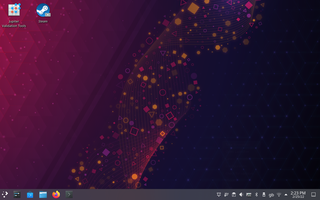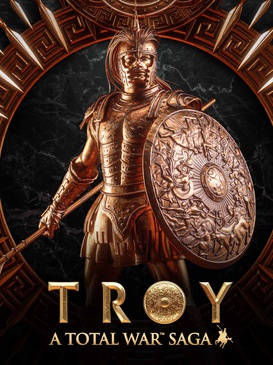
Steam is a digital distribution service and storefront developed by Valve Corporation. It was launched as a software client in September 2003 to provide game updates automatically for Valve's games and expanded to distributing third-party titles in late 2005. Steam offers various features, like game server matchmaking with Valve Anti-Cheat (VAC) measures, social networking, and game streaming services. The Steam client offers features such as automatic updates, cloud storage, and community features such as direct messaging, an in-game overlay, discussion forums, and a virtual collectable marketplace. The storefront also offers productivity software, game soundtracks, videos, and sells hardware made by Valve, such as the Index and Steam Deck.

Unity is a cross-platform game engine developed by Unity Technologies, first announced and released in June 2005 at Apple Worldwide Developers Conference as a Mac OS X game engine. The engine has since been gradually extended to support a variety of desktop, mobile, console, augmented reality, and virtual reality platforms. It is particularly popular for iOS and Android mobile game development, is considered easy to use for beginner developers, and is popular for indie game development.
Linux-based operating systems can be used for playing video games. Because few games natively support the Linux kernel, various software has been made to run Windows games, software, and programs, such as Wine, Cedega, DXVK, and Proton, and managers such as Lutris and PlayOnLinux. The Linux gaming community has a presence on the internet with users who attempt to run games that are not officially supported on Linux.
Kongregate is an American web gaming portal and video game publisher. Its website features over 124,000 online games and 30+ mobile games available to the public. The company also publishes games for PC, mobile, and home consoles. It was purchased by GameStop Corporation in 2010 before being acquired by Modern Times Group MT AB in 2017.

Lutris is a free and open source game manager for Linux-based operating systems developed and maintained by Mathieu Comandon and the community, released under the GNU General Public License.

GOG.com is a digital distribution platform for video games and films. It is operated by GOG sp. z o.o., a wholly owned subsidiary of CD Projekt based in Warsaw, Poland. GOG.com delivers DRM-free video games through its digital platform for Microsoft Windows, macOS and Linux.

Desura was a digital distribution platform for the Microsoft Windows, Linux and OS X platforms. The service distributed games and related media online, with a primary focus on small independent game developers rather than larger companies. Desura contained automated game updates, community features, and developer resources. The client allowed users to create and distribute game mods as well.

Hi-Rez Studios is an American video game developer and publisher. The company was established in 2005 by Erez Goren and Todd Harris. Hi-Rez Studios' games include the squad-based shooter Global Agenda, the critically acclaimed Tribes: Ascend, the third-person MOBA Smite, the hero shooter Paladins, and the third-person shooter Rogue Company. In 2012, Hi-Rez Studios was recognized as a Top 30 Video-Game Developer by Game Developer Magazine and Gamasutra. Hi-Rez are the current owners of the Metaltech license, including Battledrome, Earthsiege, Starsiege, the CyberStorm series, and the Tribes series. With the exception of Battledrome and CyberStorm, the games were released as freeware by Hi-Rez on October 30, 2015.

Construct is an HTML5-based 2D video game engine developed by Scirra Ltd. It is aimed primarily at non-programmers, allowing quick creation of games through visual programming. First released as a GPL-licensed DirectX 9 game engine for Microsoft Windows with Python programming on October 27, 2007, it later became proprietary software with Construct 2, as well as switching its API technology from DirectX to NW.js and HTML5, as well as removing Python and adding JavaScript support and its plugin SDK in 2012, and eventually switched to a subscription-based model as a web app.

RetroArch is a free and open-source, cross-platform frontend for emulators, game engines, video games, media players and other applications. It is the reference implementation of the libretro API, designed to be fast, lightweight, portable and without dependencies. It is licensed under the GNU GPLv3.

Steam Machine is a discontinued series of small form factor gaming computers by Valve, designed to operate SteamOS to provide a home game console-like experience. Several computer vendors were engaged with Valve to develop their own versions of Steam Machines for retail, offering additional options atop Valve's requirements such as dual-booting options with Microsoft Windows and the ability to upgrade the computer. Consumers could digitally purchase video games on their Steam Machine through Valve's namesake Steam storefront.

SteamOS is a Linux distribution developed by Valve. It incorporates Valve's popular namesake Steam video game storefront and is the primary operating system for the Steam Deck, Valve's portable gaming device, as well as Valve's earlier Steam Machines. SteamOS is open source with some closed source components.

The Epic Games Store is a video game digital distribution service and storefront operated by Epic Games. It launched in December 2018 as a software client, for Microsoft Windows and macOS, and online storefront. Android and iOS versions of the store launched in August 2024, with the iOS version only available for European users. The service provides friends list management, game matchmaking, and other features. Epic Games has further plans to expand the feature set of the storefront but it does not plan to add as many features as other digital distribution platforms, such as discussion boards or user reviews, instead using existing social media platforms to support these.

Proton is a compatibility layer for Windows games to run on Linux-based operating systems. Proton is developed by Valve in cooperation with developers from CodeWeavers. It is a collection of software and libraries combined with a patched version of Wine to improve performance and compatibility with Windows games. Proton is designed for integration into the Steam client as "Steam Play". It is officially distributed through the client, although third-party forks can be manually installed.
The ninth generation of video game consoles began in November 2020 with the releases of Microsoft's Xbox Series X and Series S console family and Sony's PlayStation 5.

Total War Saga: Troy is a 2020 turn-based strategy video game developed by Creative Assembly Sofia and published by Sega. The game was released for Windows and MacOS on 13 August 2020 as the second installment in the Total War Saga subseries, succeeding Thrones of Britannia (2018). The game received generally positive reviews upon release.

The Steam Deck is a handheld gaming computer produced by Valve Corporation, designed to run the large library of games available on the Steam storefront client. Built upon the experiences gained from Valve's earlier ventures with Steam Machine and the Steam Controller, the Steam Deck integrates a custom AMD APU and SteamOS, a Linux-based operating system. The Steam Deck represents Valve's pivot towards a fully internal hardware development approach, following the challenges faced with Steam Machines' reliance on external manufacturers and the requirement for native Linux game support.
DXVK is an open-source translation layer which converts Direct3D 8/9/10/11 calls to Vulkan. It is used by Proton/Steam for Linux, by Intel Windows drivers, VirtualBox 7.0, and it can be used to run Direct3D-based games under Windows using Vulkan. DXVK has been confirmed to support over 80% of Direct3D Windows games "near flawlessly".














